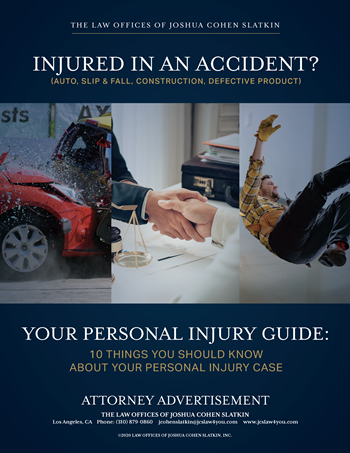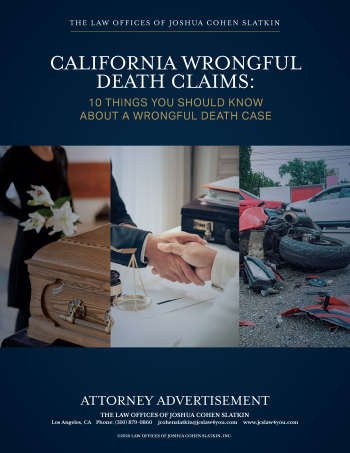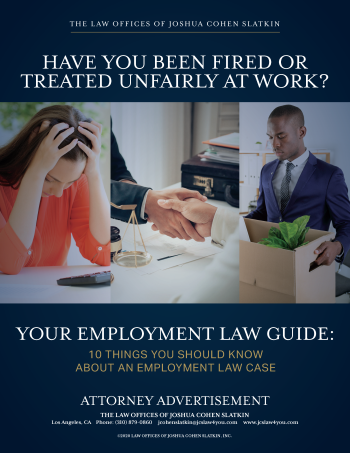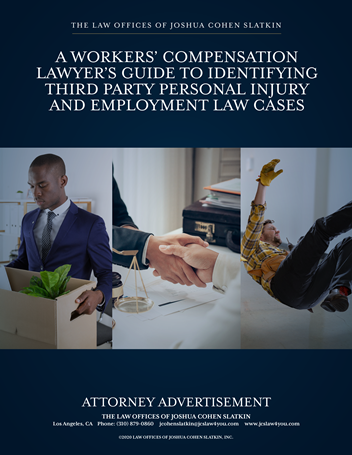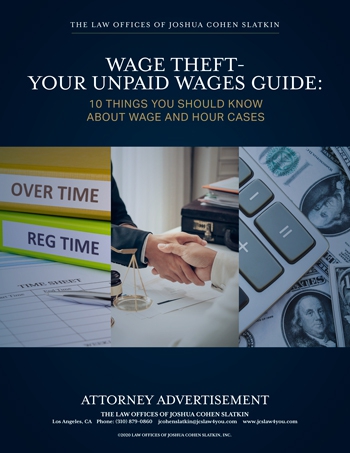Distinct Disadvantages Unique To Lien-based Medical Treatment
When you are typically sick or injured and have medical insurance, who do you typically treat with? The primary care doctor you have been going to for the past 10 years or some doctor you never heard of and are seeing for the first time that your lawyer referred you to? Most people go to their regular primary care doctors and treat on their insurance. You can also see specialists such as orthopedic doctors through your insurance also. Some lawyers prefer to use lien-based treatment when their client is uninsured or there is some other type of objective reason, as a long delay to see a specialist or start physical therapy which is often the case with government or public-sponsored health plans like Medi-Cal or certain HMOs.
Insurance companies and their army of lawyers use lien-based treatment to attack the credibility of doctors in a number of ways. Insurance defense lawyers argue in litigation that lien-based doctors do not get paid unless there is a settlement or judgment and therefore have a financial interest in the outcome. Defense lawyers argue that these doctors’ financial interest influences their opinions as to causation and the nature and extent of the plaintiff’s injuries, similar to what we do with defense medical experts. To avoid this issue, lawyers can and sometimes do pay the cost of the medical bills prior to trial to avoid any appearance of bias and/or financial interest in the litigation from the treating doctors.
Liability insurance companies may believe that injuries and treatment are more credible when the client treats through their own health insurance which can actually increase the claim value. Clients who have health insurance and are severely injured usually begin medical treatment through their health insurance. Even though the negotiated rate payments the health insurance companies can be much less than when on a lien, there often isn’t much of a decrease in case value when it comes to serious injury cases.

Situations Where Lien-based Medical Providers Have Questionable Backgrounds
(i.e. those with prior disciplinary records) who are red-flagged by insurance companies. There are doctors known by the defense bar and insurance companies that regularly treat on a lien and provide plaintiff expert witness testimony which can be used against them. You should understand that the defense lawyer is running background checks and looking into your medical providers and so should you to avoid these issues rearing their ugly head at trial. Often times lawyers use lien-based treatment with the goal of resolving the case pre-litigation or early on in litigation and don’t have an eye out for the importance of having credible medical treatment. Those of us who take over such cases have to then clean up the mess of having questionable medical doctors and/or treatment but that is not always possible. As lawyers, we have to take responsibility to ensure that even when our clients treat on a lien, they are treated with the best doctors possible that haven’t had their license suspended or aren’t under investigation for fraud (we have all been there). Often plaintiff’s lawyers use the same medical providers for multiple cases which are further used to show that the doctor is biased in favor of the plaintiff.
Defense lawyers try to argue or imply that using a lien-based doctor means that the plaintiff was not that injured and tries to give the impression that this personal injury claim is a lawyer-created case with inflated bills and unnecessary medical treatment. Jurors often are skeptical when a lawyer refers clients to a medical lien provider and this is used by defense lawyers against us.
There have also been an increase in financial intermediaries who are buying the medical liens from doctors for a reduced rate and then want to resolve the lien with the lawyer at a higher rate to make a profit. Defense lawyers have been issuing subpoenas to these financial intermediaries and trying to argue that the reasonable cost and customary rate of the medical services is the reduced rate that the financial intermediary paid for the lien, not the billed amount. This can affect the credibility of your claim and reduce the value of your case. Some courts may allow such testimony regarding the reduced rate of the medical lien paid by the intermediary company which could be disastrous to your case. See Uspenskaya v. Meline (2015) 241 Cal. App. 4th 996. Some of these companies who buy medical liens are aware of this issue and try to quash, limit or modify subpoenas but it is still a risk you run with lien-based medical treatment.
Lien-based medical providers may have an incomplete history of your client’s pre-existing issues or prior accidents. Defense lawyers often ask doctors who treat on a lien if they were aware of any pre-existing neck and back issues that the lawyers find over the course of litigation. Often these doctors use questionnaires that have questions regarding prior injuries and use them in their reports. Oftentimes, pre-existing conditions (a favored defense by insurance companies) are not properly disclosed and documented with lien-based providers. This is then used against the doctor and plaintiff when it comes to medical causation and the necessity of medical treatment arising out of their injuries. Health insurance companies and HMOs where you are going to your normal treating physician often have your past medical history which sometimes avoids the issue of failure to disclose prior injuries or pre-existing conditions. Often, it is on us, the lawyers, to obtain all of our client’s medical records immediately so we are aware of our client’s medical history and to ensure our clients are disclosing said medical conditions to their providers whether treated on a lien or not.
Medical Treatment May Be Limited Based On The Availability Of Liability Insurance
The state minimum policy of $15, 000 per person/$30, 000 per incident is not sufficient to cover extensive medical treatment on a lien. Clients who have health insurance may be better off treated through their health insurance when there is a small insurance policy to maximize the money that will go into your client’s pocket. Cal. Civil Code section 3040, subsection (c ) limits a health insurance company’s right to reimbursement so it does not exceed more than one-third (1/3) of the maximum recovery.
Medical liens require the attorney to sign the lien which makes us have fiduciary obligations to the medical lien holder. This also creates a host of issues if there is a dispute with the lien or the client does not want to pay the lien for whatever reason. Lawyers have been subjected to severe state bar discipline for failing to pay medical liens. Some lien providers are difficult to deal with which could delay the resolution of the case or even force additional litigation through an interpleader action for example.
These are some of the issues to be aware of when it comes to lien-based medical treatment.
Contact Us for a Free Personal Injury Case Evaluation
JCS Law Firm works with Southern California Personal Injury clients, helping them recover the full amount of compensation they deserve. If you’ve been injured in any type of car, motorcycle, semi-truck, or SUV accident, Contact us today to schedule a free, no-obligation consultation to discuss your case and get started filing your claim. You have nothing to lose and everything to gain with our client satisfaction guarantee!
Be sure to check out our Free E-Book, 10 Things to Know About Wrongful Death Claims in California.
For helpful tips on what to do as your case progresses, sign up for our free newsletter.




